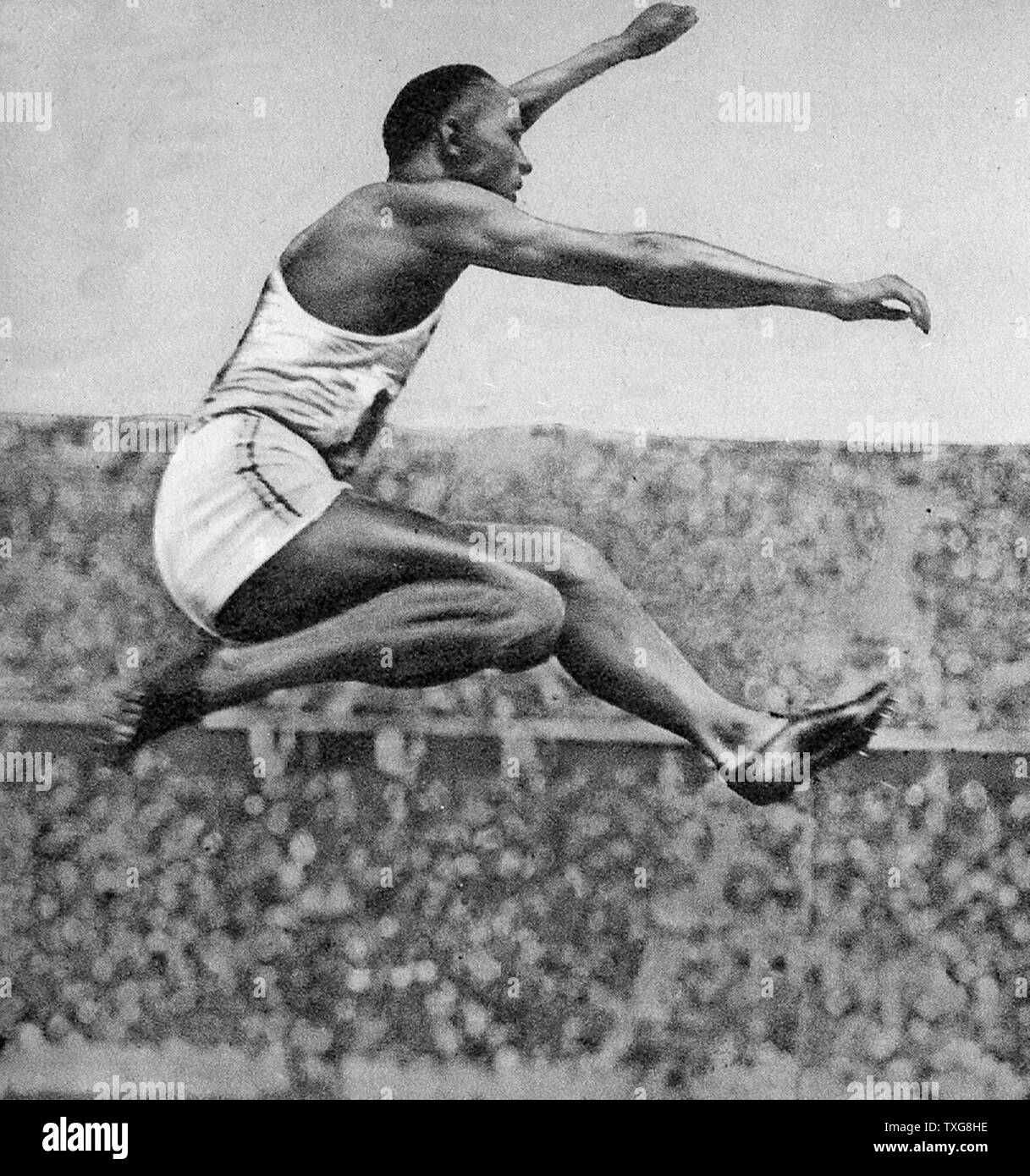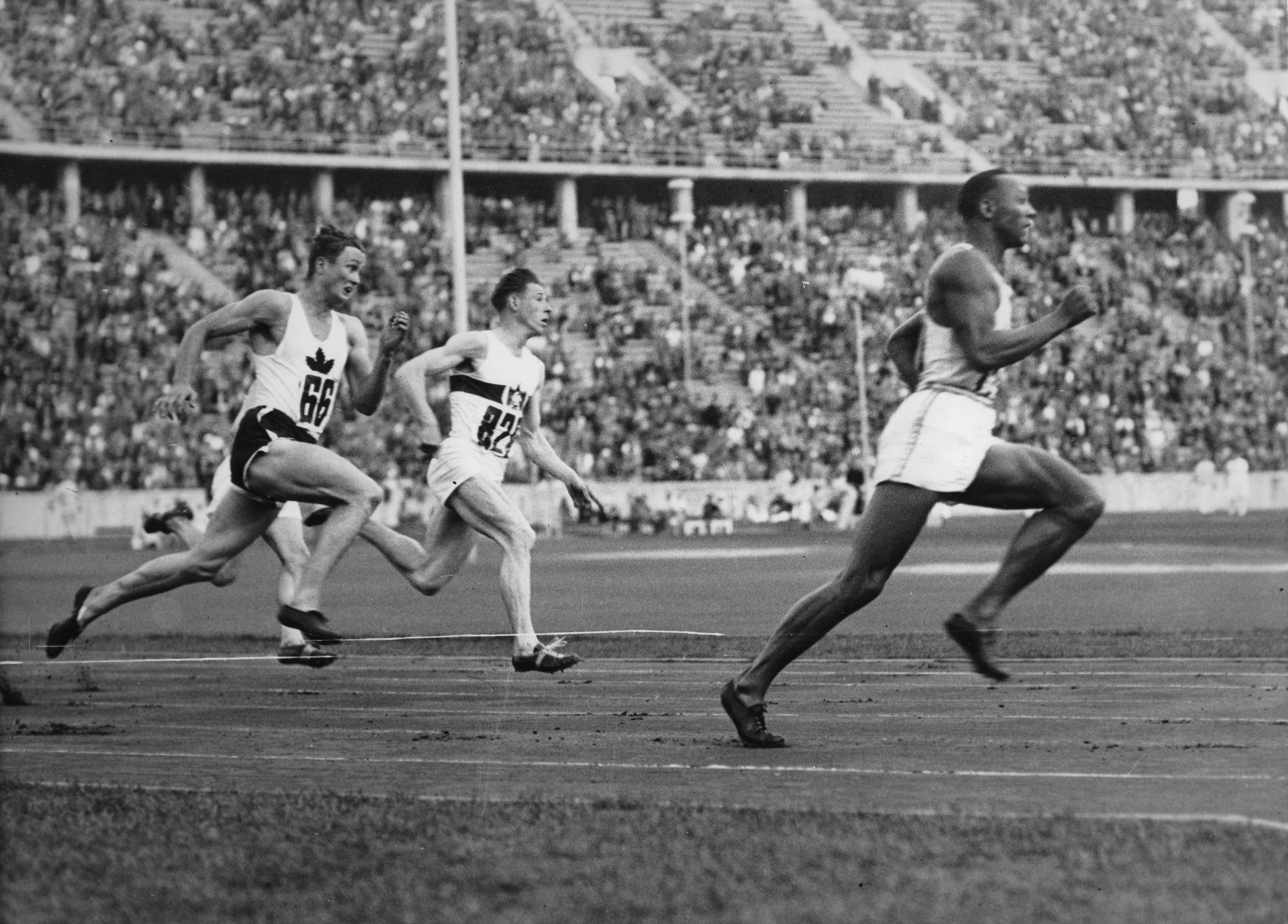Jesse Owens: A Legendary Track and Field Athlete
Jesse Owens, born on September 12, 1913, in Oakville, Alabama, was an American track and field athlete who etched his name in the annals of Olympic history. His extraordinary performances at the 1936 Berlin Olympics, held in Nazi Germany, transcended sports and became a symbol of triumph over adversity. The question ‘how many medals did Jesse Owens win at the Olympics?’ is a testament to his incredible achievements and enduring legacy.
The Significance of the 1936 Berlin Olympics
The 1936 Berlin Olympics, officially known as the Games of the XI Olympiad, were held in Nazi Germany from August 1 to 16, 1936. These Olympics were significant for several reasons, not least because they took place under the shadow of the rising Nazi regime. Adolf Hitler, the German dictator, intended to use the Games to showcase the superiority of the so-called ‘Aryan race‘ and to promote his ideology of racial supremacy. In this tense atmosphere, Jesse Owens, an African American athlete, emerged as a symbol of hope and defiance. Competing against the backdrop of racial prejudice and discrimination, Owens’ extraordinary performances at the Games transcended sports and became a powerful statement against the Nazi ideology.
The 1936 Berlin Olympics were also notable for their grandeur and scale. The Games were the first to be broadcast on television, and they attracted a record number of participants, with over 4,000 athletes from 49 countries taking part. Despite the political climate, the Olympics provided a rare moment of unity and camaraderie, as athletes from around the world came together to compete in a spirit of friendly rivalry and mutual respect.
How Many Medals Did Jesse Owens Win at the Olympics?
Jesse Owens’ performance at the 1936 Berlin Olympics is the stuff of legends. He participated in four events and won an astounding four gold medals. His medal tally is as follows:
- 100 meters: Gold Medal
- 200 meters: Gold Medal
- Long Jump: Gold Medal
- 4×100 meters relay: Gold Medal
Owens’ victories in the 100 meters and 200 meters events were particularly impressive, as he set Olympic records in both races. His performance in the long jump event is also noteworthy, as he had to overcome racial prejudice and discrimination to win the gold medal. In the relay event, Owens teamed up with Ralph Metcalfe, Foy Draper, and Frank Wykoff to set a new world record.
Owens’ incredible achievements at the 1936 Berlin Olympics made him a global icon and a symbol of hope and defiance. His performances transcended sports and became a powerful statement against the Nazi ideology of racial supremacy. The question ‘how many medals did Jesse Owens win at the Olympics?’ is a testament to his incredible achievements and enduring legacy.
Jesse Owens’ Impact on the World of Sports
Jesse Owens’ achievements at the 1936 Berlin Olympics had a profound impact on the world of sports. He demonstrated that athletic prowess transcends race, nationality, and politics. Owens’ performances inspired generations of athletes, both black and white, to pursue their dreams and strive for excellence.
Owens’ success paved the way for greater racial integration in sports. His victories challenged the deeply ingrained prejudices and stereotypes of the time, and helped to break down barriers for African American athletes. Owens’ influence extended beyond track and field, as his success inspired athletes in other sports to push for greater diversity and inclusion.
Moreover, Owens’ achievements at the Berlin Olympics played a significant role in the civil rights movement in the United States. Owens’ victories in the face of racial prejudice and discrimination became a powerful symbol of resistance and resilience. His success challenged the notion of white supremacy and helped to galvanize the fight for racial equality.
Today, Jesse Owens is remembered not only for his incredible athletic achievements but also for his impact on the world of sports and civil rights. His legacy continues to inspire athletes and activists around the world, and serves as a reminder of the power of perseverance, determination, and fair play.
The Legacy of Jesse Owens’ Olympic Medals
Jesse Owens’ Olympic medals represent not only his incredible athletic achievements but also serve as a symbol of resilience, determination, and unity. By winning four gold medals at the 1936 Berlin Olympics, Owens defied the racist ideologies propagated by the Nazi regime and left an indelible mark on the world of sports and civil rights.
The four gold medals won by Jesse Owens were in the following events: the 100-meter sprint, the 200-meter sprint, the long jump, and the 4×100-meter relay. His performance in the long jump, where he was initially denied the opportunity to use proper starting blocks, showcased his unwavering determination and skill. Owens’ decision to compete in the relay, despite initial reluctance due to concerns about overexertion, demonstrated his commitment to teamwork and camaraderie.
The inspiration provided by Jesse Owens’ Olympic medals extends beyond the realm of sports. His success served as a powerful rebuke to the discriminatory beliefs held by many at the time, including Adolf Hitler, who sought to use the Berlin Olympics as a platform to promote Aryan supremacy. Owens’ triumphs transcended the political climate and provided hope and inspiration to millions of people around the world, particularly those who faced racial discrimination.
The legacy of Jesse Owens’ Olympic medals continues to resonate today. His story serves as a reminder of the importance of perseverance, determination, and fair play. Owens’ achievements have inspired countless future generations of athletes, many of whom have followed in his footsteps by breaking barriers and challenging societal norms. Moreover, his impact on civil rights movements cannot be overstated, as his success helped to challenge and dismantle discriminatory practices and beliefs.
In conclusion, the Olympic medals won by Jesse Owens represent much more than athletic accomplishments. They symbolize a powerful message of unity, resilience, and the pursuit of equality. As we reflect on Owens’ incredible story, we are reminded of the potential for sports to bring people together and inspire positive change in the world.
Jesse Owens’ Training and Preparation for the Olympics
Achieving Olympic success requires immense dedication, discipline, and hard work. Jesse Owens, a legendary track and field athlete, exemplified these qualities in his journey to winning four gold medals at the 1936 Berlin Olympics.
Owens’ training and preparation began long before the Berlin Olympics. Growing up in Alabama, he developed a love for running and jumping at a young age. His natural talent was recognized by coaches and teachers, who encouraged him to pursue athletics. Owens attended Ohio State University, where he worked tirelessly to hone his skills under the guidance of coach Larry Snyder.
Snyder played a crucial role in Owens’ development as an athlete. He recognized Owens’ potential and provided him with the support and resources necessary to succeed. Snyder’s training regimen emphasized discipline, consistency, and attention to detail. Owens’ dedication to this program, combined with his natural athletic ability, allowed him to break numerous records and establish himself as a formidable competitor.
In addition to Snyder’s coaching, Owens received support from his peers and fellow athletes. This support network was essential in helping him navigate the challenges and pressures of competitive athletics. Owens’ teammates and competitors pushed him to be his best, providing him with the motivation and inspiration needed to achieve his goals.
As the 1936 Berlin Olympics approached, Owens continued to train diligently. He understood the significance of the event, both in terms of athletic achievement and the broader political climate. Despite facing adversity and discrimination, Owens remained focused on his goals and refused to be deterred.
Jesse Owens’ dedication and discipline in his training and preparation paid off in a remarkable way. His performance at the 1936 Berlin Olympics, where he won four gold medals, solidified his place as a legendary athlete and global icon.
Lessons from Jesse Owens’ Olympic Story
Jesse Owens’ Olympic story is a powerful reminder of the importance of perseverance, determination, and fair play. By examining his journey, we can extract valuable lessons that can be applied to our own lives and pursuits.
First and foremost, Owens’ story teaches us the value of hard work and dedication. His training and preparation for the Olympics required immense discipline and commitment. Despite facing numerous challenges and obstacles, Owens remained focused on his goals and refused to give up. This unwavering determination allowed him to achieve greatness and solidify his place in history.
Another important lesson from Owens’ story is the power of resilience. Despite facing discrimination and adversity, Owens remained steadfast in his pursuit of excellence. He refused to let the opinions and actions of others deter him from achieving his dreams. This resilience is a testament to Owens’ strength of character and serves as an inspiration to us all.
Owens’ Olympic story also highlights the importance of fair play and sportsmanship. Throughout his career, Owens demonstrated a deep respect for the rules and traditions of athletics. He competed with integrity and honor, setting an example for future generations of athletes.
By applying these lessons to our own lives, we can strive to achieve our goals and make a positive impact on the world. We can learn from Owens’ dedication and determination, his resilience in the face of adversity, and his commitment to fair play and sportsmanship.
In conclusion, Jesse Owens’ Olympic story is a powerful reminder of the importance of perseverance, determination, and fair play. By examining his journey and applying the lessons learned to our own lives, we can strive to achieve greatness and make a positive impact on the world.
Celebrating Jesse Owens’ Olympic Achievements
Jesse Owens’ Olympic achievements are a testament to his incredible talent, dedication, and perseverance. By winning four gold medals at the 1936 Berlin Olympics, Owens not only solidified his place in history as a legendary track and field athlete but also challenged the racist ideologies of the time.
Owens’ performance at the Berlin Olympics was truly remarkable. He won gold medals in the 100-meter dash, the 200-meter dash, the long jump, and the 4×100-meter relay. His achievements were made even more impressive by the fact that he was competing against the backdrop of a politically charged atmosphere, where the Nazi regime sought to use the Games to promote their ideology of Aryan supremacy.
Owens’ success at the Olympics had a profound impact on the world of sports and civil rights. He became a global icon, inspiring future generations of athletes to pursue their dreams and break down barriers. His achievements also helped to challenge the racist beliefs and practices of the time, paving the way for greater equality and inclusion in sports and society.
The legacy of Jesse Owens’ Olympic medals continues to inspire and motivate people around the world. They serve as a symbol of hope, resilience, and the power of perseverance. Owens’ story is a reminder that with hard work, dedication, and a commitment to fair play, we can all achieve greatness.
As we reflect on Owens’ incredible achievements, we encourage readers to share their thoughts and feelings about his story. What lessons have you learned from Owens’ journey? How has his legacy inspired you to pursue your own dreams and goals? By sharing our stories and experiences, we can continue to celebrate the achievements of this legendary athlete and the impact he had on the world.







